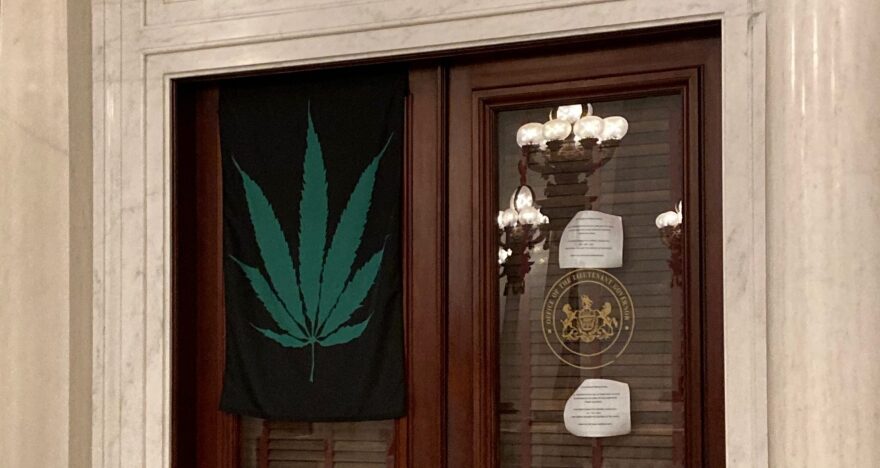State lawmakers on both sides of the aisle say they’ll champion a bill next year to bring recreational marijuana to Pennsylvania. But advocates and legal reformers say they don’t want people imprisoned due to drug laws to miss out on the “green rush.”
Tens of thousands of Pennsylvanians have been arrested for cannabis possession in recent years, and some lawmakers say criminal justice reform is a key concern for any legislation.
“Expunging people’s records for marijuana possession, and also a social economic equity piece that provides opportunities for communities that have been most adversely impacted by the criminal justice system to receive economic benefit from full legalization,” state Rep. Dan Frankel (D-Squirrel Hill) told WESA.
Frankel, who is expected to once again chair the House health committee, will be a sponsor of a House legalization bill, along with fellow Democrat Rick Krajewski of Philadelphia. And Frankel says many of his Republican House colleagues “grudgingly … recognize that the toothpaste is out of the tube. You can’t put it back. And if [cannabis] is going to exist, we ought to probably provide a safe, legal product out there that’s regulated… as opposed to an illicit marketplace.”
About half of Pennsylvanians surveyed this year, and about six in ten nationwide, say adult-use cannabis should be legal. The neighboring states of Ohio, Maryland, New York and New Jersey all permit recreational use of the drug.
Legalization will likely face opposition in the Republican-controlled Senate, but some senators already appear to be on board.
Philadelphia state Sen. Sharif Street, a Democrat, said a “comprehensive cannabis bill” is on its way in the Senate too, with support from Republican Dan Laughlin of Erie. Other Republican senators behind cannabis reform include Washington County’s Camera Bartolotta, who alongside Street says marijuana should be decriminalized, and Chris Gebhard of Lebanon, whose bill to add more medical marijuana grower-processor permits became law last year.
Street said one factor legislators must consider involves testing for intoxication, as cannabinoids remain in the body up to 30 days after consumption: “There’s a lot of talk about making sure we have standards that allow cannabis patients – and soon cannabis consumers – to be able to use cannabis without being subject to DUI” if they consumed the plant days or even weeks before.
Kristal Bush, a cannabis legal reformer, says lawmakers should ensure that licenses to sell the product are set aside for Black and brown communities, whose members have been disproportionately imprisoned under earlier, more punitive, drug policies.
Bush is optimistic a bill to fully legalize adult use of marijuana can pass next year. But she says the real question is “Do we want to do this the right way, or do we want to still allow for these large corporations to monopolize and gain from this?”
If “millions of dollars in tax revenue is generated and it’s not really going into the communities directly harmed, then that will mean nothing to us,” she added.
Pennsylvania tried to include social-equity principles in its medical marijuana program, said Penn State Harrisburg associate professor Dan Mallinson, who co-authored a book on medical programs throughout the country.
The state “had the early iteration of what social equity looked like, which was very narrow,” Mallinson said. Following a precedent set by Maryland, the state Department of Health gave “extra points” on grower-processor license applications if top executives or owners were “demographically diverse,” he said.
“That is in no way satisfying to advocates for social equity, especially in recreational programs,” Mallinson said. He said states continue to learn from each others’ medical and recreational law rollouts.
New York “has had a really rocky rollout” of its recreational law to include social equity, Mallinson said, resulting in halted business applications and court intervention. Maryland has handled things better, he said, and the state’s governor, Wes Moore, this year pardoned some marijuana-related convictions.
Mallinson believes any legalization bill will have to negotiate between the concerns of lawmakers and reformers. Still, he said, money might be the most driving force.
“When you have all of your neighbors [except West Virginia] adopting something, especially something that’s causing your residents to leave and take their money to other states, that is motivational,” he said.
H/T: www.wesa.fm



